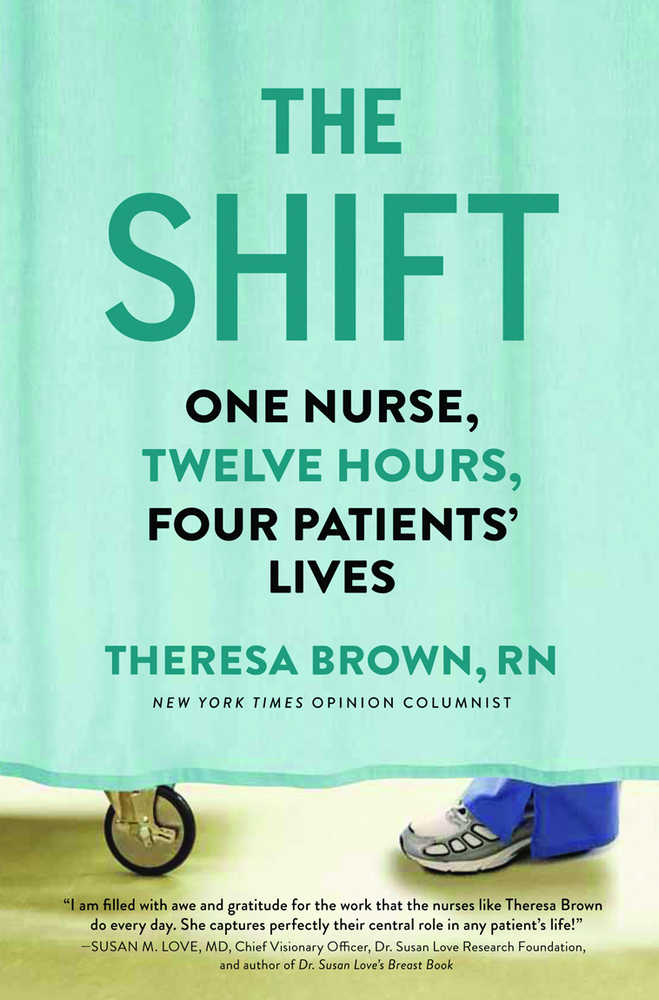Nobody likes being poked.
Nobody woke up this morning and said, “Cut into me and make me hurt for a month.” No one asks for misery, nausea, aching pain, bedpans, stitches, needles, or risk. But there it is: it happens. And if it does, after reading “The Shift” by Theresa Brown, RN (c.2015, Algonquin Books of Chapel Hill, $24.95, 272 pages), you’ll know exactly who you want by your side.
It’s often dark when Theresa Brown leaves her Pittsburgh-area home to bike to work, using her commute to clear her head in advance, to think about her family, and to prepare herself for the twelve hours ahead. She’s an oncology nurse who will most certainly face a full load of four sick patients at the hospital for which she works, and that preparation is essential.
Her workday starts at 7 a.m. when she learns that, on this particular morning, she’s been assigned an empty bed and is first in line to receive any new admits. With that in mind, she collects information about her days’ patients, taking notes, understanding that no detail is unimportant.
One patient had recently arrived at the hospital in the middle of the night, with abdominal pain and blood issues. Another was going home soon, six weeks post-chemo, with a stronger immune system. A third, an elderly man who seemed to be near death, was prescribed medication that might prove too strong for him; that it could kill him was a foremost concern. Brown’s final patient, a Johnny-come-lately last-minute admission, came with a reputation for being demanding and unnecessarily controlling — reactions, Brown sensed, to the woman’s fear.
For Brown, and for many nurses, mealtime, if they get one, lasts mere minutes. Bathroom breaks are sometimes nonexistent. Twenty percent of all nurses don’t make it past their first year; it’s a hard job, complete with a cacophony of phones and beeps; lights, charts, urgency, personality clashes, body fluids, and death.
“This is nurse’s work,” says Brown. It’s what happens until “Another nurse, another good-hearted overworked soul in white” takes over for the next shift.
No doubt, you’ve recently heard the howl of national support for nurses from every corner. No doubt, especially after you’ve read “The Shift,” you’ll know it’s justified.
Just reading about the pressure-filled day that Brown describes made me awe-struck: the thousand things to remember (many of them, literally, life-or-death matters), the emotions (hers and her patients’) and maintaining a delicate harmony in doctor-nurse relationships while doing her job in the midst of hospital cut-backs, fiscal scrutiny, changing rules, and other frustrations.
I’m addled just typing that. Thankfully, Brown balances any negatives with moments of levity and a firm sense of control, which is obviously as soothing to patients as it is to readers.
I absolutely couldn’t get enough of this book. I raced through it, knowing that it would be satisfying but that the ending might not be rosy. If you’ve ever been a patient, I think you’ll like it too, so look for it. Missing “The Shift” would be a bitter pill to swallow.
The Bookworm is Terri Schlichenmeyer. Email her at bookwormsez@yahoo.com.

